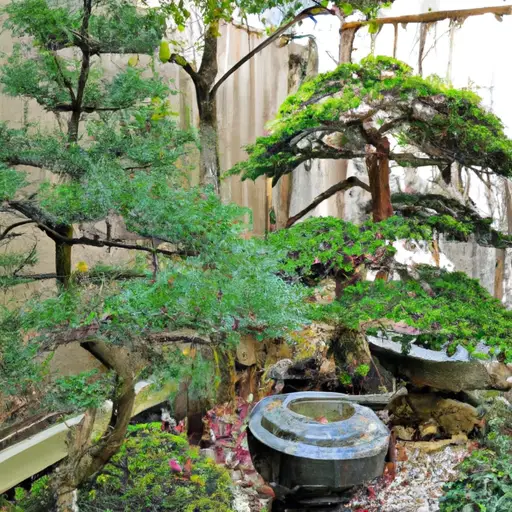Nurturing Beauty and Serenity through Zen-inspired Container Gardens
In our fast-paced and hectic world, finding moments of peace and serenity have become more valuable than ever. One way to create a peaceful environment at home is through the art of Zen-inspired container gardening. These miniature gardens not only bring beauty and tranquility to any space, but they also provide an opportunity for self-reflection and mindfulness.
Zen gardens, also known as Japanese rock gardens or dry landscapes, have their roots in ancient Buddhist traditions. They were originally created as spaces for meditation and contemplation, designed to mimic the essence of nature within a confined area. While traditional Zen gardens are large-scale installations made with rocks, gravel, and carefully raked patterns, the concept can be adapted to small container gardens.
Creating a Zen-inspired container garden begins with selecting the right container. Traditional Zen gardens often use rectangular or square-shaped containers made from natural materials such as wood or stone. However, you can use any container that suits your personal taste and aesthetic preferences – be it ceramic, metal, or even glass.
The next step is selecting the elements that will compose your garden. In a Zen garden, simplicity is key. Stick to a minimalistic approach by choosing just a few carefully selected elements that represent nature – rocks, gravel or sand, moss or grasses – which will create texture and depth within your container.
Rocks are central to a Zen garden as they symbolize mountains or islands in the sea. They can be arranged in clusters or individually placed to create focal points within your mini-garden. Choose rocks with interesting shapes and textures that speak to you personally.
Gravel or sand can serve as the base of your garden; these materials represent water or an empty canvas ready for contemplation. Rake patterns into the gravel using a small fork or rake tool to mimic waves or meaningful lines that flow harmoniously through the space.
Moss adds a touch of lushness and life to your Zen garden. It grows well in shaded areas and can be used to cover the soil around your rocks or create small islands of greenery. Alternatively, you can choose grasses or low-maintenance plants that thrive in containers, such as miniature ferns or bonsai trees.
The arrangement of these elements is entirely up to you – there are no strict rules in Zen gardening. Trust your intuition and let your creativity guide you. Keep in mind that the goal is not to recreate a realistic landscape, but rather to evoke a sense of calm and serenity.
Once you have set up your Zen-inspired container garden, taking care of it becomes a mindfulness practice on its own. Treat it as an extension of yourself – water it mindfully, clear away any debris with intention, and take time to appreciate the beauty that it brings to your space.
As you engage with your garden on a regular basis, allow it to become a source of tranquility and inspiration. Use this opportunity for self-reflection and meditation; allow the act of tending to your garden to bring you into the present moment, fostering a sense of peace within yourself.
In conclusion, creating a Zen-inspired container garden brings beauty and serenity into our lives amidst the chaos of our modern world. Whether you have limited outdoor space or simply want an oasis indoors, these miniature gardens provide an opportunity for mindfulness and inner peace. By cultivating simplicity and nurturing our connection with nature through these gardens, we can find moments of tranquility in our everyday lives.














